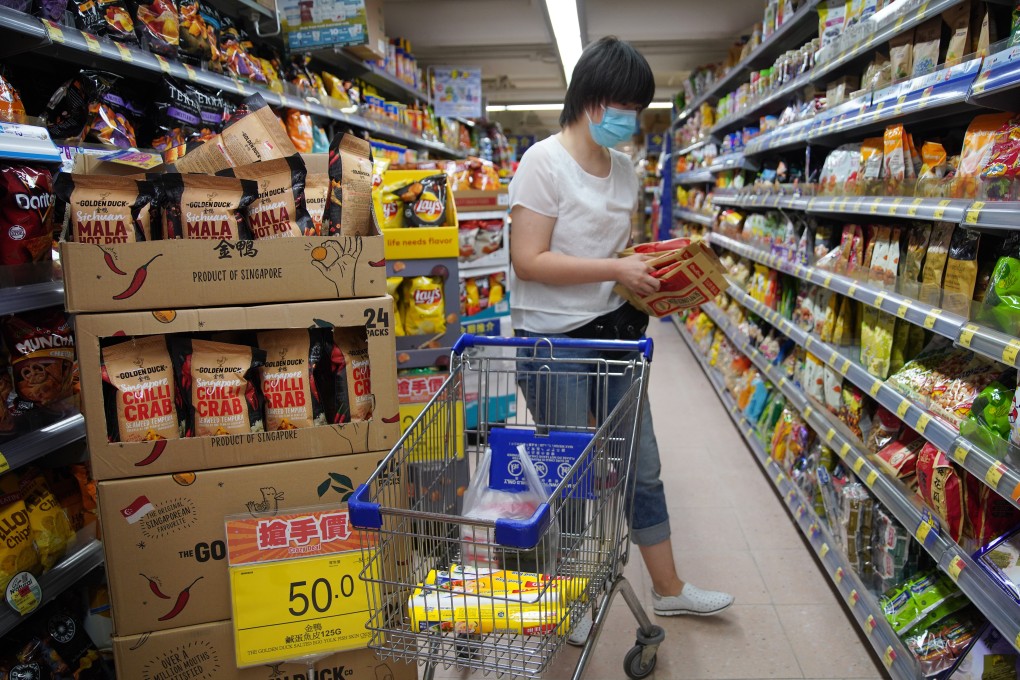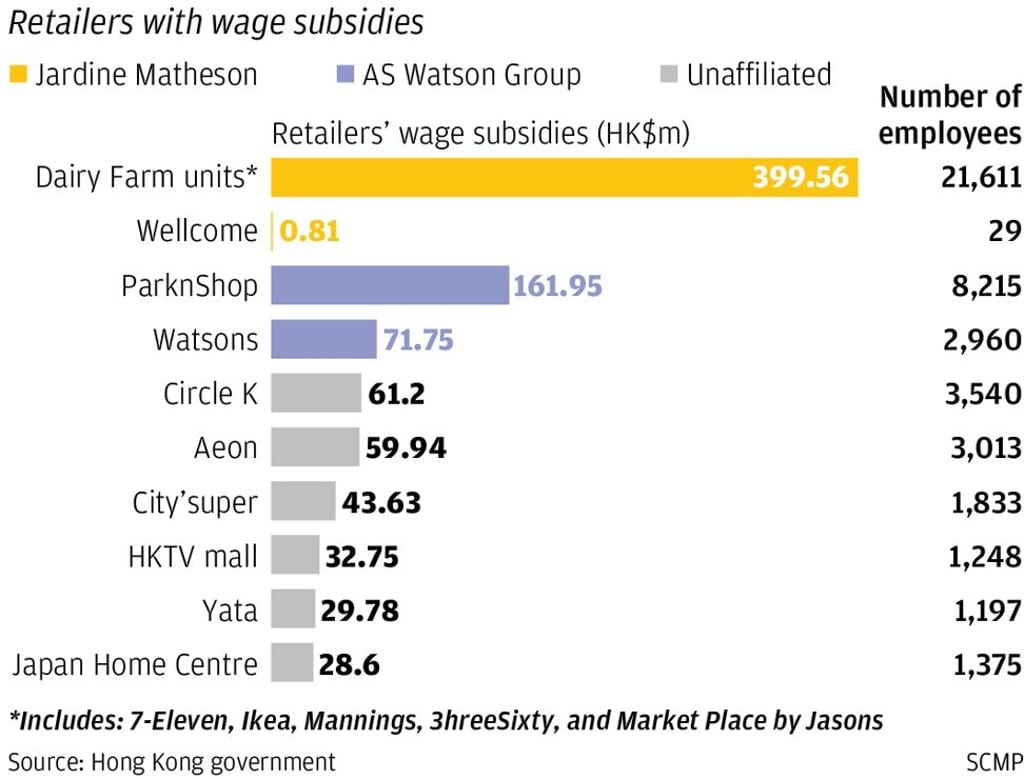Advertisement
Opinion | Why Hong Kong supermarkets dipping into the public till for coronavirus relief is distasteful
- With a recent study showing that the city’s two supermarket chains marked up prices before discounting them, their promises of giving to the needy after receiving government subsidies rings hollow
- The Competition Commission and Consumer Council must step in
Reading Time:3 minutes
Why you can trust SCMP

When the government decided to compel the city’s two supermarket chains to give shoppers discounts in return for tapping deeply into the Employment Support Scheme, the government’s Covid-19 wage subsidy programme, it elicited some mirthless laughs.
The city’s two main supermarket chains haven’t been known for their generosity. Rather, it’s their spectacular greed that puts them among the first to come to mind whenever anticompetitive behaviour in Hong Kong is discussed.
A global public health crisis could not bring down the behemoth and leviathan of Hong Kong’s corporate greed. Supermarkets are among the few sectors that have thrived during the pandemic, while the rest of the retail industry has been buckling under the weight of Covid-19 with 33 per cent retail sales drop this year.
Advertisement
Supermarket sales rose due to people switching from dining out to cooking at home, and fear of shopping at wet markets. And yet, the two supermarket chains received a huge chunk of wage subsidies – about HK$250 million in the first tranche of the scheme and close to HK$350 million for the latest round.
Requiring them to give out half of what they receive in just the second tranche of the scheme is better than nothing, but it’s just a drop in the ocean. The food and cash coupons and meal vouchers that will be issued to the needy are the very least that they can do for the months of raking in both profit and government subsidy.
Advertisement
And what they have offered in terms of giving discounts to customers is pretty pathetic. Promotions have always been part of their strategies. One of the chains has said that it will freeze prices for more than 300 daily essential items for at least six months – that sounds decent, except that it’s quite easy to simply raise prices before the freeze.
Advertisement
Select Voice
Select Speed
1.00x

